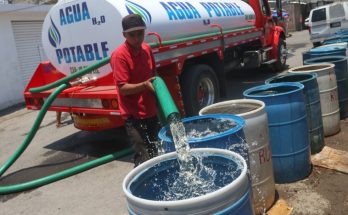Carbon Bonds for the local market, the proposal in Querétaro
By Alejandro Angulo
Carbon Bonds is an economic market instrument and, at the same time, of a mechanism for reducing CO2 emissions. Although, we are a little behind in the implementation of this instrument in Mexico, plans to collect green taxes have been announced by the Government of the State of Querétaro for next year. We can be fairly sure that this market instrument will become a reality, particularly because the emission of polluting gases is such a severe problem.
There are several reasons why Local Carbon Credits ought to be used in a Local Trade system. They would be measurable, reportable and verifiable, without compromising the competitiveness of the participating sectors with international markets. There is a regulatory framework established in Climate Change Law in some States.
The objectives of establishing Local Carbon Credits include:
- Development of economic, fiscal and financial market instruments linked to actions on climate change;
- Increasing and/or restoring conservation surfaces, and natural or artificial sinks for carbon capture;
- Promoting the reduction of emissions at the lowest possible cost.
For participating municipalities within the State of Querétaro, the following goals have been set:
- Development of a certification process for low carbon emission processes, products and services, in coordination with the Department and the Center.
- Proposals for the establishment and application of incentives and economic instruments that promote the objectives of this law.
Article 24 of the Climate Change Law, states that the design and elaboration of policies, and associated mitigation actions in all sectors, should consider the following points:
- Protection and increase of natural sinks;
- Reduction of emissions of compounds and greenhouse gases, and increased mitigation programs in the transportation sector;
- Reduction of emissions, and increase of sinks in the agricultural and forestry sectors, through the preservation of ecosystems, and care of biodiversity.
The State Program for Action on Climate Change indicates an adaptation strategy based on ecosystems. This includes the use of biodiversity and ecosystem services. It establishes in a very specific way, as part of its actions, the implementation of the Carbon Bond trade in the State.
In addition, the following is noted:
- That the 2013 evaluation by the Organization for Economic Cooperation and Development (OECD) on Mexico in environmental matters recommended the creation, and promotion of environmental economic mechanisms.
- That the State of Querétaro is one of the pioneers in creating local market economic-environmental mechanisms, consistent with the 2021 Environmental Code.
- That since 2012, the Executive Branch of the State Government has assumed certain elements of its environmental responsibility. That includes compensation for its gas emissions from its entire vehicle fleet.
- That the Legislative Branch of the State Government issued an agreement, by which citizens owning vehicles will cover the cost for environmental compensation, to reduce the carbon footprint. With this, they are co-responsible for their emissions to the atmosphere.
- That the Institute of Ecology and Climate Change of the municipality of Querétaro has had as a unique purpose: namely, the conservation of lands with environmental value, through the acquisition by compensation, donation or purchase. This is in order to guarantee the citizens of the municipality the right to a healthy environment, and integral development, as considered in the Political Constitution of the State.
- That in the face of climate change and the relative scarcity of water, it is necessary to implement mitigation policies. These include the conservation of strategic properties with environmental value, as well as those included in the municipal Natural Protected Areas.
- That the municipality occupies a portion of the Lerma Chapala Basin, which exhibits levels of water scarcity. That is where the majority of the population and productive economic activities are based, and it thereby faces the challenge of designing public policies, and integrating economic instruments, with environmental criteria.
- That the largest vehicle fleet is located in the municipality. This fleet constitutes the main mobile source of polluting gas emissions into the atmosphere. For this reason, it is necessary to apply economic mechanisms to control and preserve carbon sinks in order to guarantee a quality of life and public health,
- That the municipality must implement policies to sustain, and improve environmental competitiveness, quality of life, and the conservation of strategic environmental common goods.
- That based on all of the above, and as part of the functions and purposes of the Institute of Ecology and Climate Change (IECC), the economic instrument of the Carbon Bonus (environmental service of capturing CO2) will be used. It will be implemented by donation, compensation or trade in the properties of the Municipal Natural Areas and those others, private or ejido, which are part of the Certified Urban Biodiversity Fragments program. Each user (of environmental services) assumes the real costs for maintenance and conservation of the properties, in a competitive manner, and is an active participant in the Development of the Sustainable City.
Finally, a metropolitan approach must be considered in all this. This will strengthen the local market for Carbon Credits, establish policies, methodologies and certification procedures. All of these shall be approved and adhere to the Mexican Standard NMX-AA-173-SCFI-2015 and national methodologies; developed by CONAFOR and the National Institute of Ecology and Climate Change INECC.




